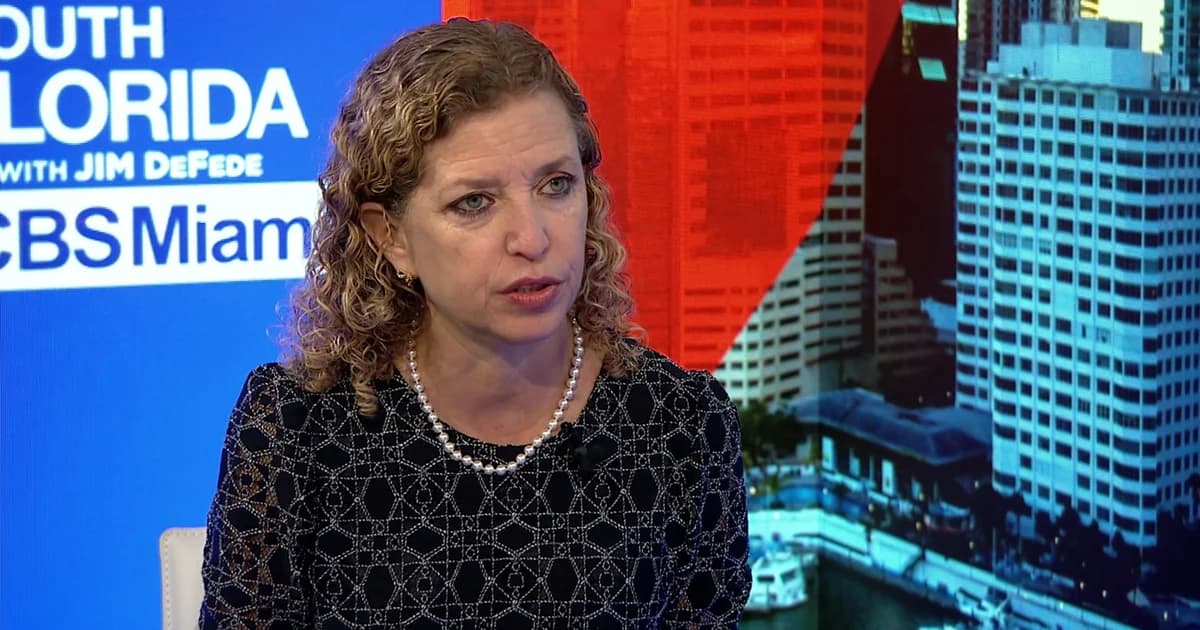The shocking reality of the Trump administration"s newly constructed immigration detention center dubbed "Alligator Alcatraz" has been laid bare following an inspection by Florida lawmakers. Reports describe a facility where 32 men are packed into cages, deprived of basic human dignity, and subjected to appalling living conditions.
Lawmakers Expose Inhumane Treatment
During a state-arranged tour of the detention center in the Florida Everglades, US Representative Debbie Wasserman Schultz characterized the living conditions as "barbaric". "The pictures you have seen don"t do it justice," she stated. "They are essentially packed into cages, wall to wall humans, 32 detainees per cage." This stark depiction aligns with previously documented accounts of overcrowding in immigration facilities across the nation, where the treatment of detainees often borders on inhumane.
Disgraceful Hygiene and Nutrition Standards
According to Schultz, the hygiene conditions are dire. Detainees are forced to drink water and brush their teeth in the same space where they use the toilet. This lack of sanitation is alarming, particularly for a facility housing nearly 900 men. As reported by The New York Times, similar facilities have been criticized for unsanitary conditions, which can lead to severe health issues among detainees.
The food served is no better. Schultz revealed that detainees are offered "small grey turkey and cheese sandwiches, an apple and chips" — meals that are utterly insufficient for fully grown men. This raises significant concerns regarding the nutritional standards imposed on these vulnerable individuals. Reports from NPR highlight that many detention centers across the country have faced similar allegations of negligent food quality.

Trump to visit "Alligator Alcatraz" migrant detention center ...
Political Maneuvering and Evasion
Amidst the outcry, Florida Governor Ron DeSantis and other officials have defended the facility, claiming it meets all required standards. A spokesperson for the Florida Division of Emergency Management dismissed allegations of substandard conditions as "completely false." This denial resonates with a broader tactic employed by the administration to shield the realities of immigration detention from public scrutiny. As reported by AP News, five Democratic lawmakers have even filed a lawsuit after being denied access to the facility during its opening, accusing the DeSantis administration of obstructing their oversight authority.
Public Outcry and Protests
The opening of Alligator Alcatraz has not gone unnoticed. Hundreds of protesters gathered to demand humane treatment for migrants and to protect the surrounding preserve, which is home to endangered species and Native American tribes. This demonstrates a growing public awareness of the injustices faced by immigrant populations and the urgent need for reform in the immigration system.
Yet, the administration’s response to the criticism has been combative. During a recent visit to the facility, Trump made light of the alligator-infested waters surrounding it, joking that detainees would need to learn how to escape from alligators. Such flippancy reflects a disturbing disregard for human life and dignity, further embedding the narrative of dehumanization that has plagued US immigration policy for decades.

Florida lawmakers denied entry to Alligator Alcatraz immigration detention site
Historical Context of Detention Policies
The backdrop of these detentions can be traced back to the Trump administration"s "Zero Tolerance" policy implemented in 2018, which sought to deter illegal immigration by criminalizing border crossings. This policy has roots extending back to the 1970s, as detailed by the NACLA Report on the Americas. It established a framework that prioritized punitive measures over compassionate treatment, resulting in a system that has become notorious for its cruelty and inefficiency.
As the situation at Alligator Alcatraz continues to unfold, it represents a critical juncture in the ongoing struggle for immigration reform and human rights protections. The implications of these conditions extend far beyond the walls of this facility, highlighting the urgent need for systemic change in how the United States treats those seeking safety and a better life.

![[Video] Federal officers deploy sting balls and flash grenades at Whipple Building](/_next/image?url=%2Fapi%2Fimage%2Fthumbnails%2Fthumbnail-1768340555229-vhfcc-thumbnail.jpg&w=3840&q=75)
![[Video] Crowd-control weapons used in Minneapolis as anti-ICE protesters attack police vehicle](/_next/image?url=%2Fapi%2Fimage%2Fthumbnails%2Fthumbnail-1768336302231-akxf7s-thumbnail.jpg&w=3840&q=75)

![[Video] Protests erupt in Minneapolis after ICE detains teenager, multiple arrests made](/_next/image?url=%2Fapi%2Fimage%2Fthumbnails%2Fthumbnail-1768331835371-z9ylqg-thumbnail.jpg&w=3840&q=75)


![[Video] Gunfire between Iraqi security forces and Sadr militias in Baghdad](/_next/image?url=%2Fapi%2Fimage%2Fthumbnails%2Fthumbnail-1768343508874-4redb-thumbnail.jpg&w=3840&q=75)
